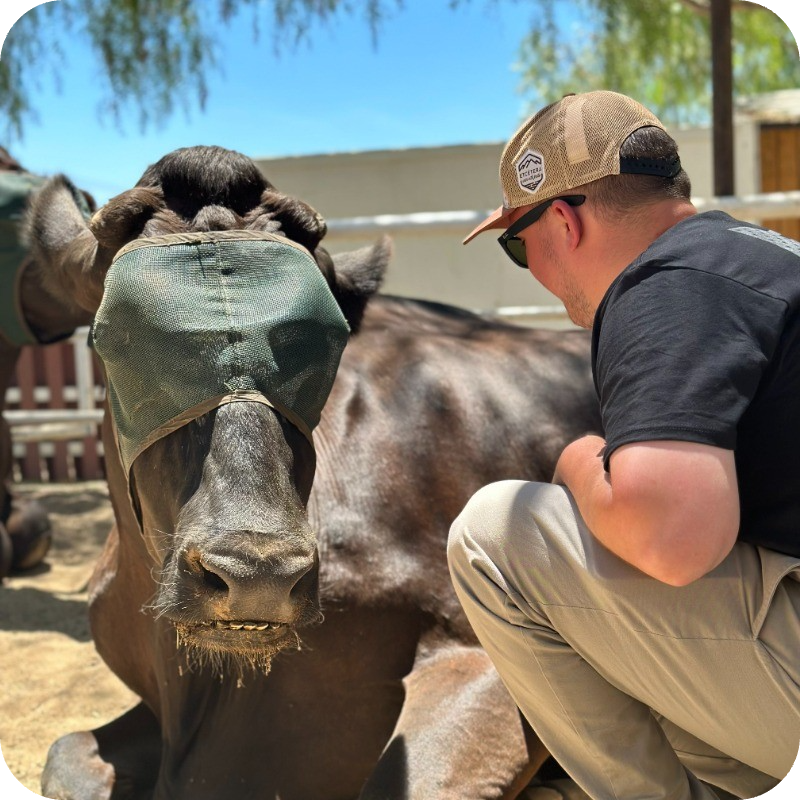The work of animal rescue and cruelty investigators is essential, but it carries a significant emotional and psychological burden. From witnessing severe neglect and abuse to navigating systemic failures in animal The work of animal rescue and cruelty investigators is essential, but it carries a significant emotional and psychological burden. From witnessing severe neglect and abuse to navigating systemic failures in animal welfare, the toll of this work is profound. Mental health in this field is often overlooked, yet it is crucial for sustaining the individuals who dedicate their lives to protecting animals.
As someone deeply involved in animal welfare investigations, I have seen firsthand the emotional impact this work has. The trauma of uncovering cases of cruelty leaves lasting marks, not only on the animals but also on the investigators. Recognising and addressing these mental health challenges is vital for building resilience and maintaining effectiveness in this important work.
How Trauma Affects Animal Rescue Professionals
Animal cruelty investigators and rescue workers are regularly exposed to distressing situations: malnourished animals, violent abuse, hoarding environments, and even large-scale neglect cases. Over time, this repeated exposure can lead to vicarious trauma, a condition where witnessing suffering indirectly affects mental health. Common symptoms include:
- Emotional numbness or heightened alertness.
- Difficulty sleeping, recurring nightmares, or insomnia.
- Feelings of helplessness, anxiety, or depression.
- Avoidance of certain cases or situations.
- Burnout or compassion fatigue.
For many in animal rescue, the drive to help can lead to neglecting their own wellbeing. Without intervention, these symptoms can worsen, affecting both personal lives and professional performance.
Jacob Lloyd’s Tips for Self-Care and Decompression
In such an emotionally demanding field, building routines and incorporating decompression strategies are essential for long-term sustainability.
Structured Routines for Stability
- Time Management: Set clear work hours with defined start and finish times to avoid becoming consumed by cases.
- Breaks: Take short, regular breaks, especially after dealing with distressing situations. Use this time to step away from screens or the rescue environment.
- Case De-escalation Practices: Allow time between handling traumatic cases to emotionally reset before moving on to new investigations.
Decompression Techniques
- Physical Activity: Exercise is a proven stress-reliever. Even a 15-minute walk after a tough case can help clear your mind.
- Mindfulness and Relaxation: Practices such as meditation, deep breathing, or grounding exercises can provide a sense of calm and control.
- Hobbies and Creative Outlets: Engage in activities unrelated to work to redirect focus and foster positive emotions.
When to Seek Professional Help
Even with robust self-care practices, there are times when trauma becomes too overwhelming. Recognising these moments is critical:
- Persistent feelings of anxiety or despair.
- Chronic nightmares or flashbacks related to cases.
- Physical symptoms, such as fatigue or headaches, without a clear medical cause.
- Withdrawal from loved ones or hobbies.
Seeking therapy or counselling is not a sign of weakness—it is an essential step towards healing. Mental health professionals can provide tailored coping strategies to address the unique challenges faced by animal rescue workers.
The Power of Peer Support
In the often isolating work of animal cruelty investigations, peer support can be a lifeline. Sharing experiences with colleagues who understand the emotional demands of this field can alleviate feelings of loneliness and offer practical coping tools.
Benefits of Peer Support
- Emotional Validation: Knowing you are not alone in your feelings can be deeply comforting.
- Shared Strategies: Learning from others’ methods of managing stress can expand your toolkit.
- Community Connection: Building a network of like-minded professionals fosters resilience and camaraderie.
What Organisations Can Do to Support Mental Health
Animal welfare organisations must prioritise the mental wellbeing of their teams. A healthy, supported workforce is more effective and resilient.
Provide Access to Mental Health Resources
- Offer free counselling services.
- Include mental health education in training programmes.
Promote Work-Life Balance
- Establish clear boundaries for working hours.
- Normalise taking mental health days, particularly after distressing cases.
Foster a Culture of Openness
- Encourage team members to share their challenges without fear of judgment.
- Train managers to recognise signs of burnout and trauma in their teams.
Moving Forward: Building Resilience in Animal Welfare
The work of animal rescue and cruelty investigations is not for the faint-hearted. It demands immense emotional strength, compassion, and determination. However, to sustain this critical work, we must prioritise mental health. By creating routines, seeking support, and advocating for systemic changes within organisations, we can build a healthier, more resilient community of animal welfare professionals.
If you work in this field, know that it is okay to ask for help. It is okay to step back when the emotional weight becomes too much. And it is okay to prioritise your wellbeing while continuing to fight for those who cannot speak for themselves. Together, we can create a sustainable future for both the animals we protect and the people dedicated to their rescue.
Jacob Lloyd’s LinkedIn and Inbox
Lastly, my LinkedIn inbox is always open for anyone who needs to talk. Having experienced PTSD first-hand, I understand the challenges that come with emotionally demanding work. Whether you need support, advice, or simply someone who will listen, I’m here to help. You’re not alone in this journey.

I am the Executive Director of the Animal Welfare Investigations Project. I lead investigations into organised animal cruelty.
Leave a Reply